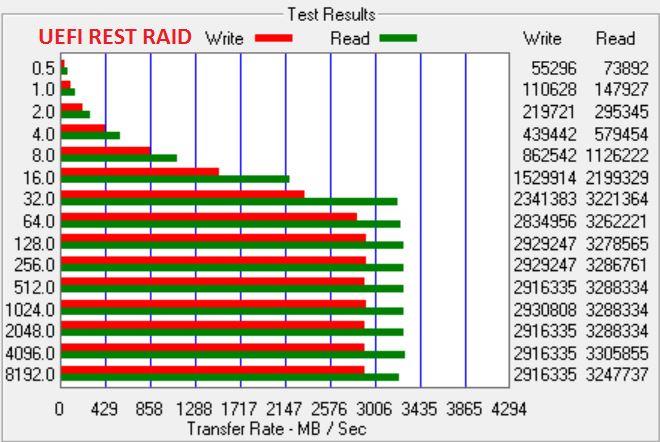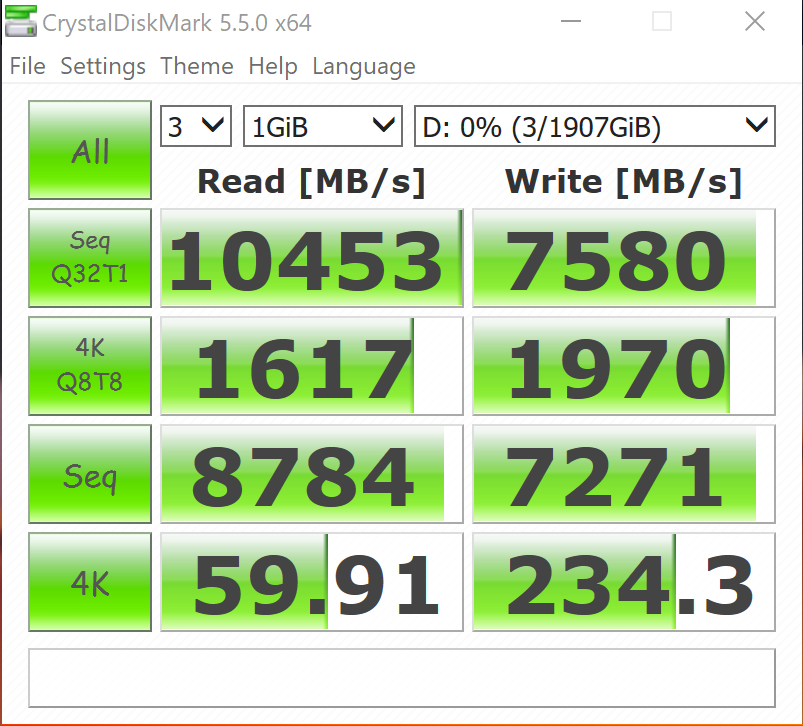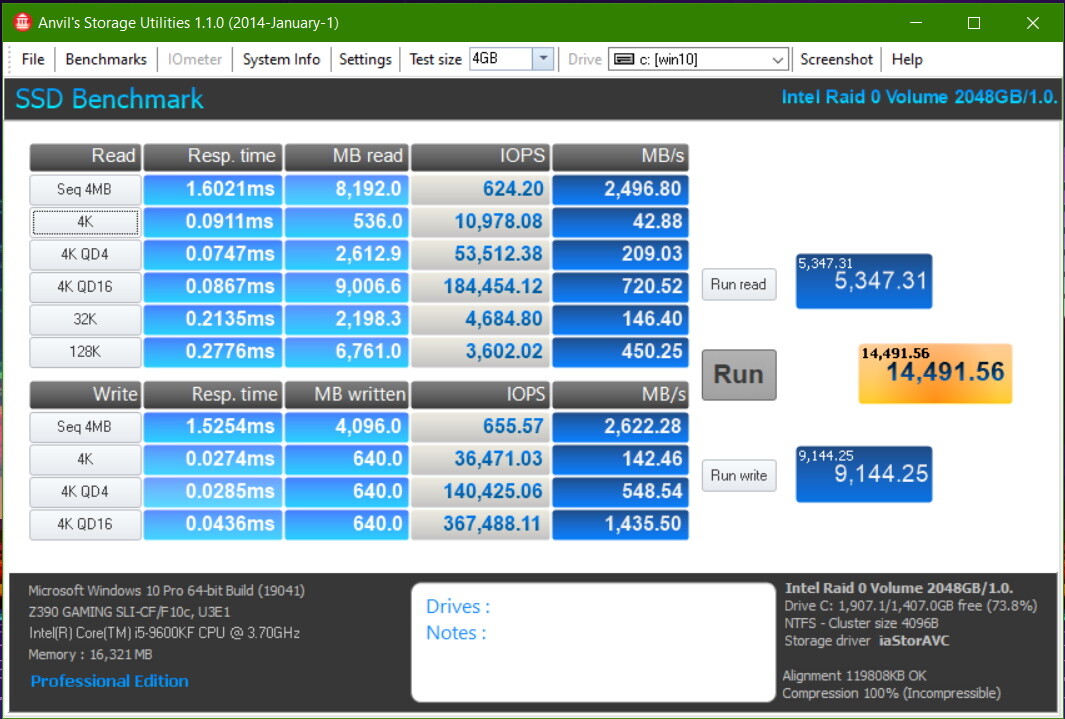SSDs and NVMe have significantly impacted RAID implementations by enhancing performance, but they also introduce new challenges and considerations.
NVMe SSDs leverage PCIe lanes for direct CPU access, resulting in much lower latency and higher throughput compared to traditional SATA SSDs. This makes NVMe RAID configurations capable of delivering extremely high read/write speeds, which is crucial for demanding workloads such as 8K video rendering or large-scale data processing. However, NVMe drives are typically connected via PCIe rather than through traditional storage controllers, which means hardware RAID support for NVMe SSDs is often limited or unavailable. Many servers, such as some HPE ProLiant models, do not support hardware RAID for NVMe SSDs because these drives bypass the storage controller, requiring RAID to be implemented at the software or OS level instead.
Performance considerations:
-
RAID arrays with NVMe SSDs can achieve very high throughput, but the RAID level and software implementation matter. For example, software RAID-5 on NVMe SSDs can perform well on Windows but may show suboptimal performance on Linux due to filesystem and utility inefficiencies.
-
Mixing SSD types (e.g., NVMe with SATA SSDs) in RAID can cause the slower SATA drives to bottleneck the overall performance, so it is generally recommended to use homogeneous SSD types within a RAID array to maximize speed and reliability.
Reliability and data protection:
-
RAID with SSDs, including NVMe, improves data security by providing redundancy (mirroring, parity) so that data remains available even if one or more drives fail. This is especially important because SSD failure can lead to total data loss if no redundancy is in place.
-
SSD RAID arrays also enhance endurance and reliability by distributing workload and allowing for drive replacement and rebuilding without data loss.
Summary:
| Aspect | Impact of SSDs (NVMe) on RAID |
|---|---|
| Performance | Much higher throughput and lower latency; ideal for high-demand workloads |
| Hardware RAID Support | Limited or no hardware RAID support for NVMe due to PCIe connection; software RAID is common |
| RAID Level Suitability | RAID 0, 1, 5, 10 possible with software RAID; performance varies by OS and RAID type |
| Mixed SSD RAID | Mixing NVMe and SATA SSDs can bottleneck performance; homogeneous arrays preferred |
| Data Protection | RAID enhances data redundancy and reliability over single SSDs |
In conclusion, NVMe SSDs have elevated RAID performance potential but require software RAID solutions due to hardware controller limitations. Proper RAID configuration and homogeneous SSD selection are key to maximizing benefits while ensuring data protection.



















Maple Ranking offers the highest quality website traffic services in Canada. We provide a variety of traffic services for our clients, including website traffic, desktop traffic, mobile traffic, Google traffic, search traffic, eCommerce traffic, YouTube traffic, and TikTok traffic. Our website boasts a 100% customer satisfaction rate, so you can confidently purchase large amounts of SEO traffic online. For just 720 PHP per month, you can immediately increase website traffic, improve SEO performance, and boost sales!
Having trouble choosing a traffic package? Contact us, and our staff will assist you.
Free consultation